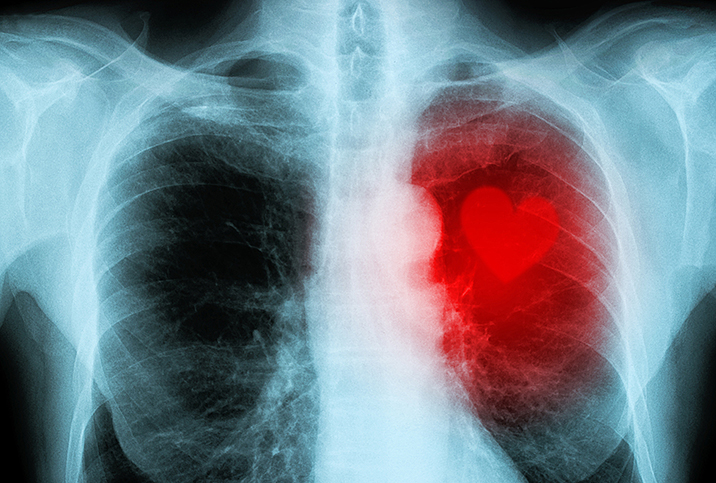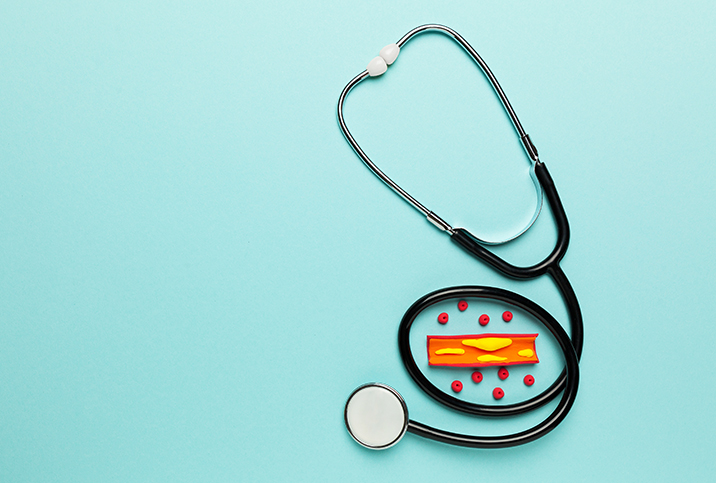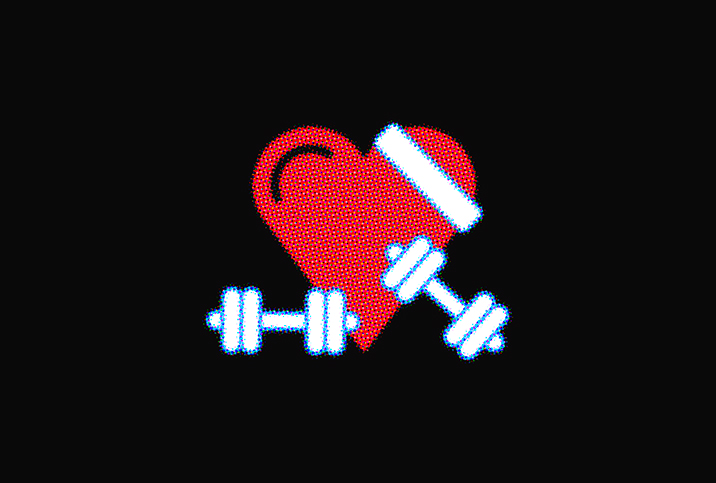Questions to Ask Your Doctor About Heart Disease and ED

Heart disease is the number one cause of mortality in the United States, accounting for as many as one in four deaths according to the Centers for Disease Control and Prevention (CDC).
What's more, the links between heart disease and erectile dysfunction (ED) have never been more apparent. Coronary artery disease, the buildup of plaque and fatty deposits in the arteries leading to the heart, reduces blood flow and can cause a heart attack. This is the most common type of heart disease, and the decreased blood flow it causes can also affect erection quality. The much smaller arteries and veins responsible for carrying blood needed in the penis to make it erect are even more dramatically affected by any reduction.
Given the gravity of heart disease and its connections to ED, it's crucial to have a conversation with your doctor about both conditions if you have either. Here are a few key questions you should ask.
1. Does my ED indicate early heart disease?
While erectile dysfunction doesn't always indicate impending heart disease, it can be an early signal. One of the early indicators of heart disease is endothelial dysfunction, which causes the blood vessels to be unable to dilate correctly.
As more men in their 30s and 40s report erectile issues, doctors have sounded the alarm over a concurrent rise in younger men with early signs of heart disease. Men who begin to experience ED, especially younger men, should be screened for cardiovascular disease and other common, related conditions. Your doctor will also likely order tests for diabetes, cholesterol levels and high blood pressure.
2. Why are you prescribing this medication, and what effects might it have on ED?
Erectile dysfunction is notorious for acting up when a man takes certain medications, including meds to combat heart disease and high blood pressure.
If you experience ED and don't tell your doctor about it when you're discussing your coronary condition, they won't be able to help you with potential medication changes that could alleviate the problem. Don't be shy, speak up—your doctor has heard it all before, and they will have strategies that will help.
3. Which heart disease risk factors might affect me and my ED?
Understanding how all the conditions related to cardiovascular disease work together is crucial to combating erectile dysfunction as well. If you have a family history of high cholesterol, diabetes or high blood pressure, you and your doctor need to discuss them in terms of how they relate to both your heart disease treatment and that for ED..
4. What lifestyle changes can I make to help reduce the risk of heart disease and ED?
While consulting with your doctor and taking medication for cardiovascular problems is vital to staying healthy, there are countless lifestyle choices we make every day that can help alleviate the worst effects of heart disease and ED.
Talk to your doctor about what type of exercise program might be suitable for your age and health status. Also ask about dietary changes you can make to get on the path to a healthier heart. Since obesity is known to be a common factor in ED, maintaining a healthy weight through diet and exercise can make a big difference.
Other factors that can reduce risk of heart disease and ED include a healthy sleep schedule, stress reduction and good mental health. Depression, for example, is thought to be a factor in both heart disease and maintaining healthy sexual function.
An eight-year follow-up study published in Psychosom Med in 2014 indicated that addressing depression early helped to reduce the chances for developing heart disease later. Another study published in the Journal of Sexual Medicine showed a strong relationship between ED and depression and anxiety.
If you suffer from depression, anxiety, insomnia, excessive stress or other mental health issues, add these to the list of concerns to discuss with your doctor. When you're dealing with interrelated topics as vital to your well-being as your heart health and the health of your sex life, it's more important than ever to speak up in the exam room.


















